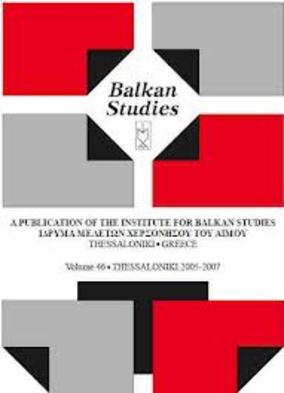Les Grecs de Russie au 19e siecle et au debut du 20e
Part of : Balkan studies : biannual publication of the Institute for Balkan Studies ; Vol.32, No.2, 1991, pages 235-269
Issue:
Pages:
235-269
Parallel Title:
The Greek in Russia in the nineteenth and early twentieth century
Section Title:
Articles
Author:
Abstract:
The number of Greeks living in Russia inscreased considerably in thenineteenth century, as they fled the various forms of oppression inflictedupon them in the Ottoman Empire.At the beginning of the nineteenth century organised Greek communitiesstarted to spring up, and they became increasingly active in the communal,commercial, ecclesiastic, educational, social, and cultural spheres.In the hospitable environment of the Russian Empire, “our brother theGreek”, as the Russians called him, embarked upon a wide variety of activitiesin communities with special privileges (such as Nezin) and in the Black Sea’sfree port of Odessa. All the Greeks enjoyed the official policy of “protection”and the special affection the average Russian felt for the enslaved Christiansof the Balkans. It was in this climate that the Filiki Etaireia, the Greek PhilanthropicSociety, and the Greek Imperial Subsidiary Committee began tofunction.This paper examines the activities of the Gieeks element from the end ofthe eighteenth century to the fourth decade of the twentieth century. Specifically,it looks into the structure of the Greek communities within which theGreek merchants, artisans, landowners, teachers, clergy, scholars, academics,university professors, national benefactors, patrons of the arts, diplomats,consular and other civil servants, military and naval men, doctors, and masonslived and worked, and also includes within its scope Greek literature publishedat the time, educational activity, and theatre.
Subject:
Subject (LC):




